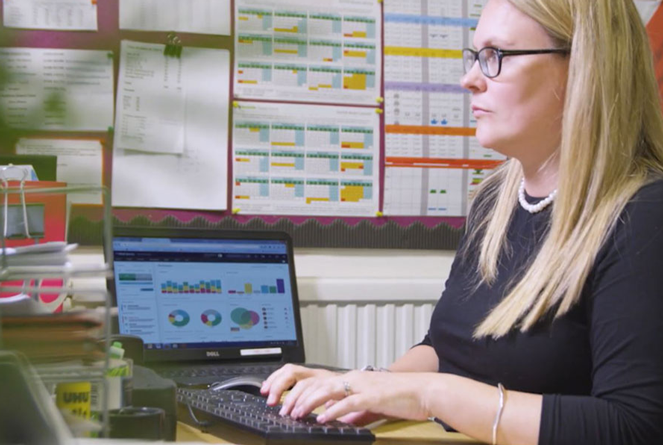Introduction
A recent report from GOV.UK on Separated Family Statistics highlights that in the latest financial year ending 2023, approximately 2.4 million families in Great Britain were separated, impacting around 3.8 million children. With such a sizable number of children coming from diverse family structures, it's imperative for schools to prioritise strong parental engagement strategies.
In this blog, we'll explore the definition of a parent in terms of educational law and the importance of inclusive parental engagement. We will also discuss practical approaches for schools to ensure effective communication with all family dynamics, including separated families and offer our top tips on improving inclusive parent engagement in schools.
The definition of a parent in education law
Defining parental status for pupils is important but can be complex due to varying legal definitions. Below, we outline who qualifies as a legal parent from an educational law perspective to determine who is entitled to school communications:
- Biological parents
- Individuals with parental responsibility, including:
- Adoptive parents
- Step-parents
- Guardians or relatives like grandparents
Additionally, caregivers, regardless of biological ties, may be considered parents under education law, granting them rights and responsibilities regarding the child's education.
The importance of inclusive parental engagement
Effective parental engagement has been linked to improved academic outcomes, better pupil behaviour, and increased school attendance. However, to achieve these benefits, schools must recognise and address the diverse needs of families, including those who are separated or divorced. Research shows that children from separated families often face additional challenges, including emotional stress and academic difficulties. Schools can provide much-needed support and stability during this transitional period by actively involving both parents in their child's education.
Five ways schools can ensure inclusive parental engagement
Flexible communication channels
Offer a variety of communication methods, such as email, phone calls, text messages, newsletters, and communications via parent engagement apps, such as MarvellousMe, to accommodate different parental preferences and schedules. This ensures both parents can access important school information and updates and see their child’s achievements.
Neutral language and tone
Use neutral language and avoid assumptions about family dynamics when communicating with parents. Address communications to "parent/guardian" or "family" rather than "mother" or "father" to be inclusive of diverse family structures.
Separate notifications
In cases of separated families, provide separate communication channels for each parent, allowing them to receive information independently. MarvellousMe enables parents to create their own accounts, providing separate communication channels for each parent. This guarantees that both parents stay informed and engaged in their child's education, receiving updates on rewards and recognitions, such as house points or school badges, independently if they prefer not to communicate directly.
Equal information sharing
In order to promote inclusivity and parental involvement, schools must prioritise equal information sharing. This means ensuring that important updates, such as parent-teacher conference schedules, school events and a child’s progress, are communicated effectively, regardless of their family dynamics.
Parent education and support
Offer resources and workshops on co-parenting and supporting children through family transitions to help families navigate their child's educational journey effectively. This can include guidance on effective communication, managing conflict, and advocating for their child's needs.
Top tips for creating inclusive parent engagement in schools
- Create a culture of trust. Build strong relationships with parents based on mutual respect, open communication, and transparency. Establishing trust is essential for maintaining long-term inclusive parent engagement.
- Train staff members on the importance of inclusive parental engagement and provide them with strategies for effectively communicating with separated families.
- Establish clear policies and protocols for communicating with separated parents, ensuring consistency and fairness across all interactions.
- Be responsive and approachable. Listen to parents' feedback, concerns, and suggestions with empathy and understanding. Make yourself accessible and responsive to their inquiries and ensure that their voices are heard and valued.
- Collaborate with community organisations and support services to provide additional resources and support for families going through separation or divorce.
- Regularly evaluate and review parental engagement strategies to identify areas for improvement and ensure ongoing inclusivity and effectiveness.
Conclusion
Inclusive parental engagement in schools is essential for a supportive educational environment, particularly for children from separated families. By adopting inclusive communication strategies and supporting separated parents, schools empower families to engage in their child's education to create positive outcomes for all pupils.
Supporting separated families with MarvellousMe
Discover how Juniper Education can enhance your school's parent engagement efforts, especially for separated families, with MarvellousMe.
Empower parents to stay informed and involved in their child's education using our innovative parent communication platform.
Contact us today to learn more and book a free demonstration with our parent engagement experts.


/Primary%20school%20.jpg?width=2000&name=Primary%20school%20.jpg)








.png?width=940&height=788&name=Lingfield%20College%20Case%20Study%20(5).png)
-1.png?width=1000&height=833&name=National%20Association%20of%20Head%20Teachers%20(3)-1.png)
-3.png?width=1080&height=1080&name=Untitled%20design%20(10)-3.png)






